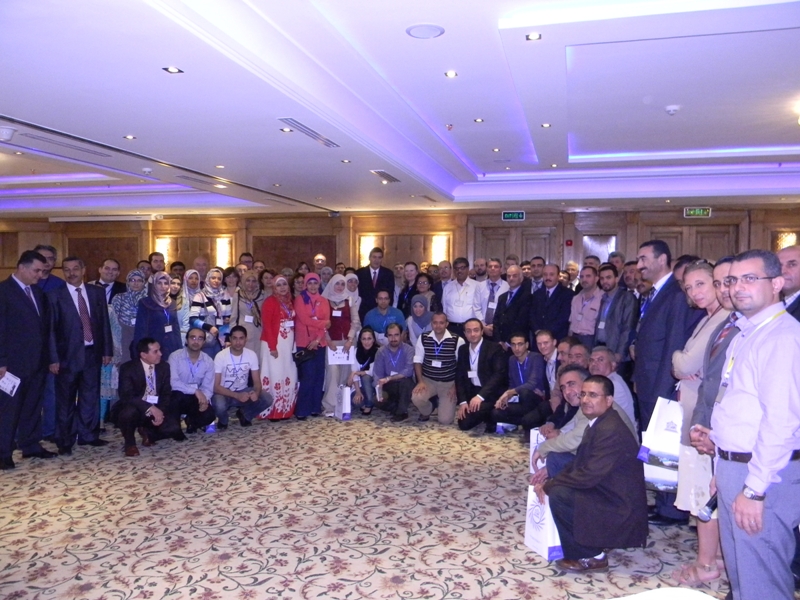To cover the networking of user for the third year of LinkSCEEM-2 project, an HPC dedicated users' meeting has been organized jointly with the 10th SESAME Users' meeting. The event was held in Amman 7 - 9 November 2012.
News
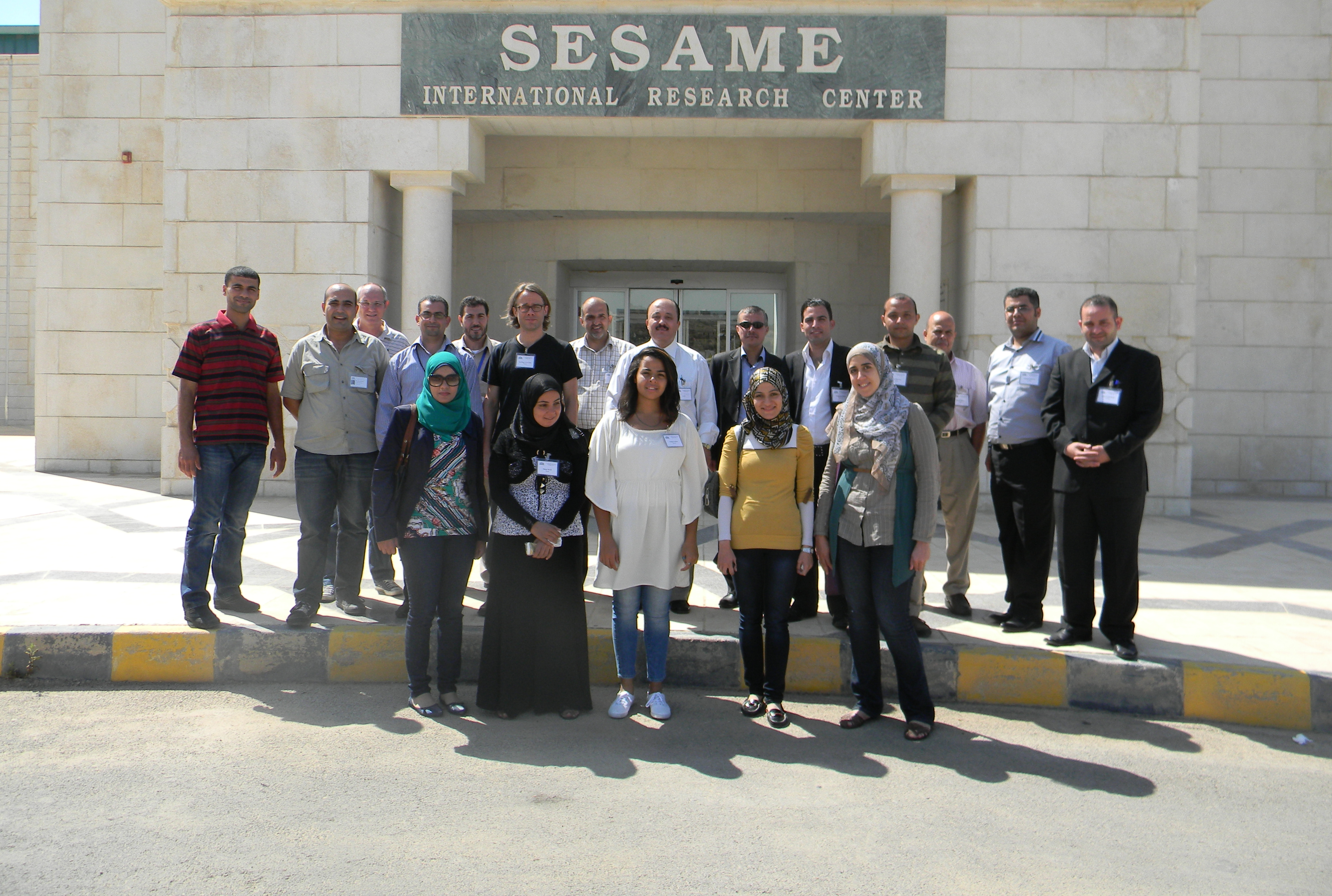
The 2nd SESAME-LinkSCEEM Summer School took place at SESAME site during the period form 11 - 13 September, 2012.
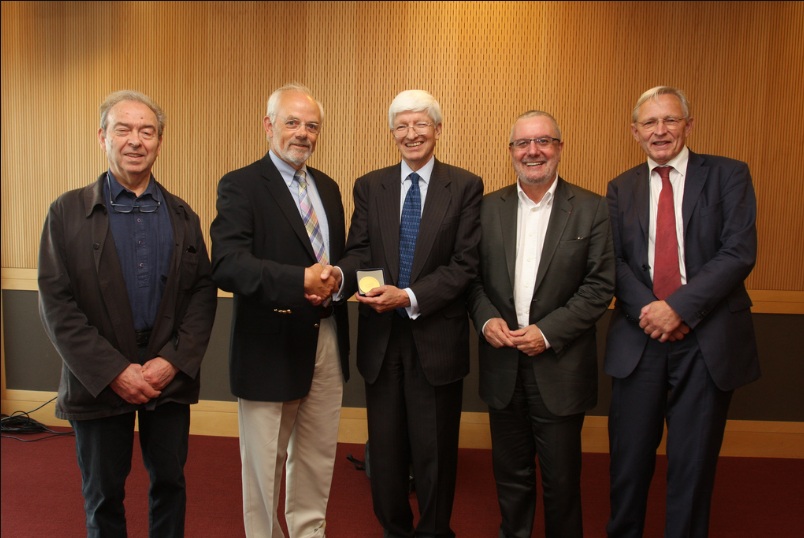
Chris Llewellyn Smith, President of the SESAME Council, receiving the 2011 Rammal Award on behalf of SESAME from Lauritz Holm-Nielsen, President of Euroscience.
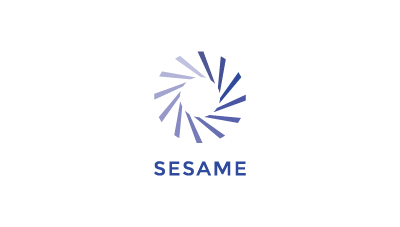
On 21 May 2012, Irina Bokova, Director-General of UNESCO, visited SESAME. This was her first visit since she took on her present position in 2009. She was welcomed by the President of the SESAME Council, Chris Llewellyn Smith, and the Director of SESAME, Khaled Toukan.

The months of November and December have been particularly busy at SESAME. On Monday 28 November 2011 at 01:13, the microtron beam was successfully extracted from its final orbit (orbit 42) to be the full energy beam with 22.5 MeV, according to the specifications of the SESAME classical microtron. This eagerly awaited beam was obtained in the second session of full energy commissioning of the microtron.

On Monday 28 November 2011 at 1.13 a.m., the Microtron beam was successfully extracted from its final orbit (orbit 42) with the full energy of 22.5MeV, according to the specifications of SESAME's classical Microtron.
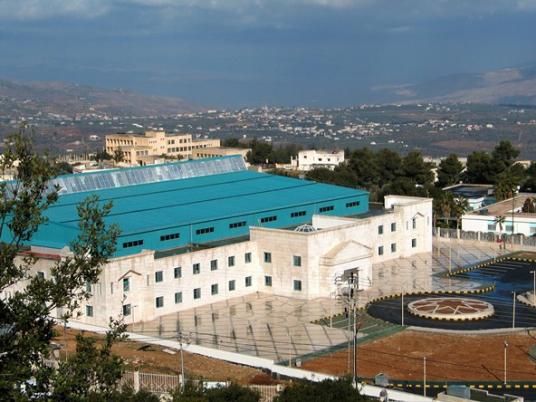
Scientists see nuclear cooperation brightening in the Middle East through a breakthrough project involving Jordan, Egypt, Israel, the Palestinian Authority and other partners.

Synchrotron light sources enable the study of matter on scales ranging from biological cells to atoms using light with photon energies ranging from milli-electron Volts (far-infra-red) to 100 kilo- electron Volts (very hard X-rays).
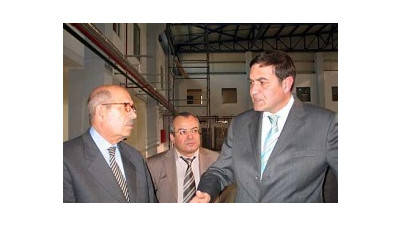
On 14 April 2007, on the occasion of his visit to Jordan, Mohamed ElBaradei, Director-General of the International Atomic Energy Agency (IAEA), visited SESAME’s building being constructed in Allan by the Authorities of Jordan.
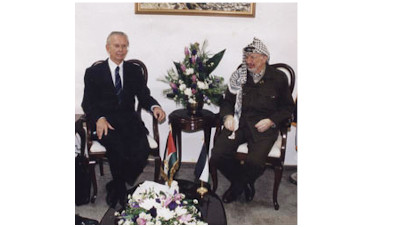
Can a recycled synchrotron become an oasis of peace in the Middle East?
By Mike Perricone.


